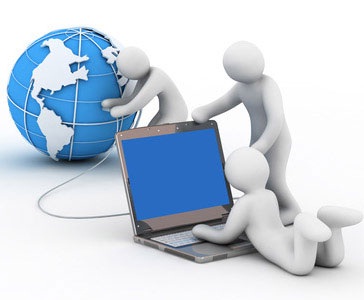Almost everyone has a computer these days. At least if you’re reading this, you definitely have one. Computers have a great impact on our lives and the information we have stored on our hard drives is sometimes just too valuable. But, like everything else, it may be endangered one day. A virus might attack the system and you can kiss you data goodbye then. But is it always the case? How do you prevent this from happening? There are some helpful tips I’d like to share.
- Update your system frequently. There can be bugs and holes in the system’s security but they get fixed with updates. So if you want to be sure there are no security issues, stay up-to-date.
- Use complicated passwords. The more complex the password is, the more letters and figures you use, the higher the chance that not one will ever be able to guess it, neither a human nor a robot. It’s also highly advisable to change passwords frequently. This isn’t just for fun, it’s in order to keep your data safe.
- Download programs from official websites. If you decide to download a program, make sure the website you’re downloading from is the official website of the manufacturer. Do not risk your computer’s well-being with downloading from program directories, there’s a good chance the .exe file you’re about to download is infected with a virus. Be attentive and don’t let the “free software” label fool you.
- Do not click on ads without thinking. Ads can be useful sometimes but they can also be fishing links that can endanger your computer’s safety. Be careful when casually surfing the internet, the black marketers already know which links you’re most likely to click on, so don’t let them deceive you. If the link appears suspicious, don’t click on it, “a million dollar prize” is really not worth it.
- Make sure you’re using the latest version of the browser. It may be annoying when you’re constantly asked to update your browser but it definitely must be done and as often as needed. The browsers are being improved all the time so if your browser is up-to-date, there’s no need to worry, you’re safer than with an old version.
- If possible, do not use administrator account. As an ordinary user, you don’t always need administrative rights to operate. The thing is that if you have administrator’s access, then any virus that infects your system automatically gets this access level as well. That’s not very convenient, isn’t it? As you know, viruses are programs too, so if the administrator’s account is turned off, the virus will need the administrator’s rights to work. This way you can always detect the suspicious behavior of any program and deny access in time.
- Turn off the autorun on your system. With the administrator’s account and autorun both turned off, the risk of virus infection is very low. You’ll need to launch the virus program manually with the administrative rights then. If you keep your head on your shoulders and think before you push the OK button, you won’t have any trouble.
- Back up regularly. This is crucial in order to have a happy computer life. The more frequently you back up, the greater chance you have to preserve your data, even if it gets damaged by a virus someday. Losing files is no fun. Although if you have forgotten to back up a certain file and it got damaged by a virus, you can still get it back. For example, you can use an online data recovery service and recover your file online without downloading and installing anything. You can even do it for free.
The moral of the story seems quite clear. You don’t necessarily need an antivirus in order to keep the dangers away. Simply be cautious and always think before you do something. This applies to real life as well 🙂


